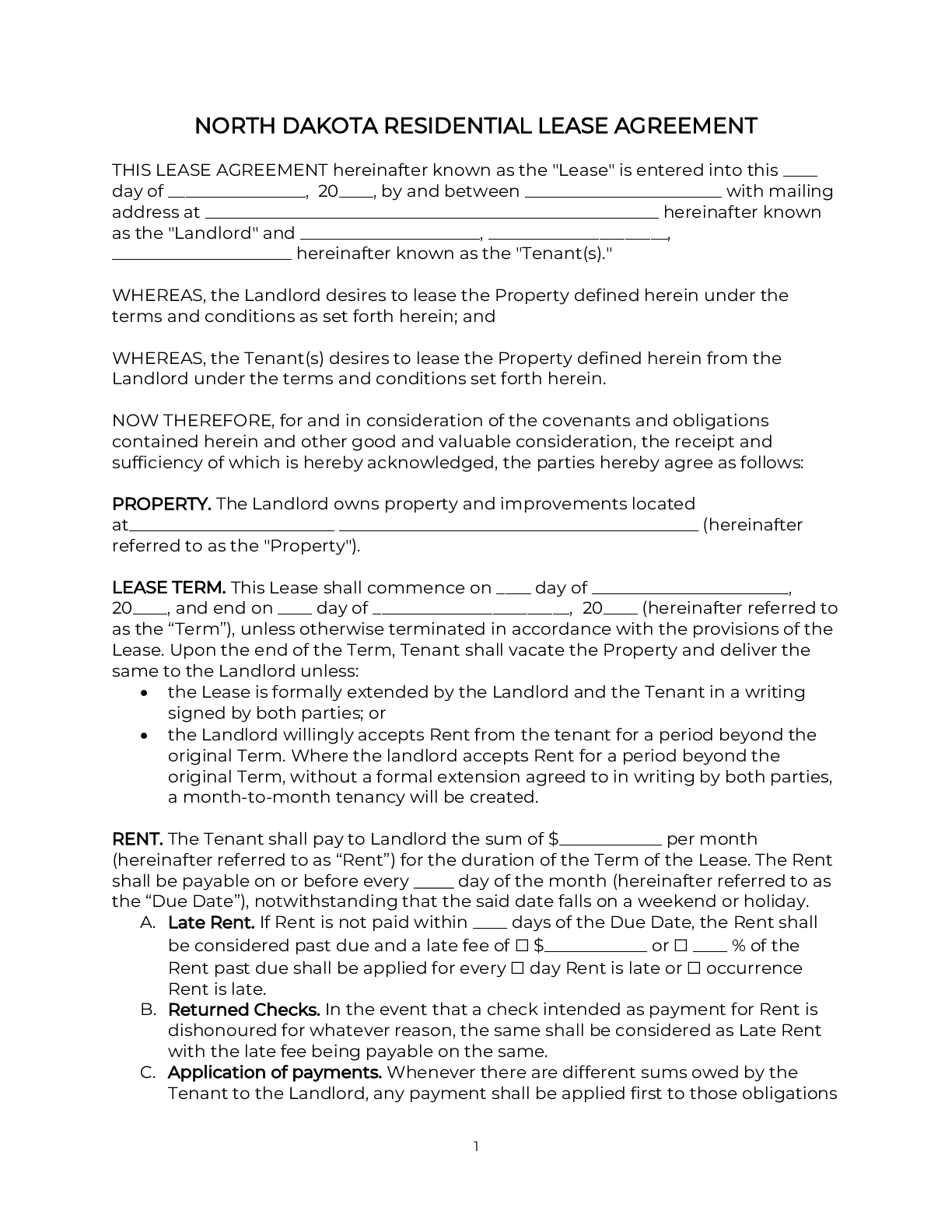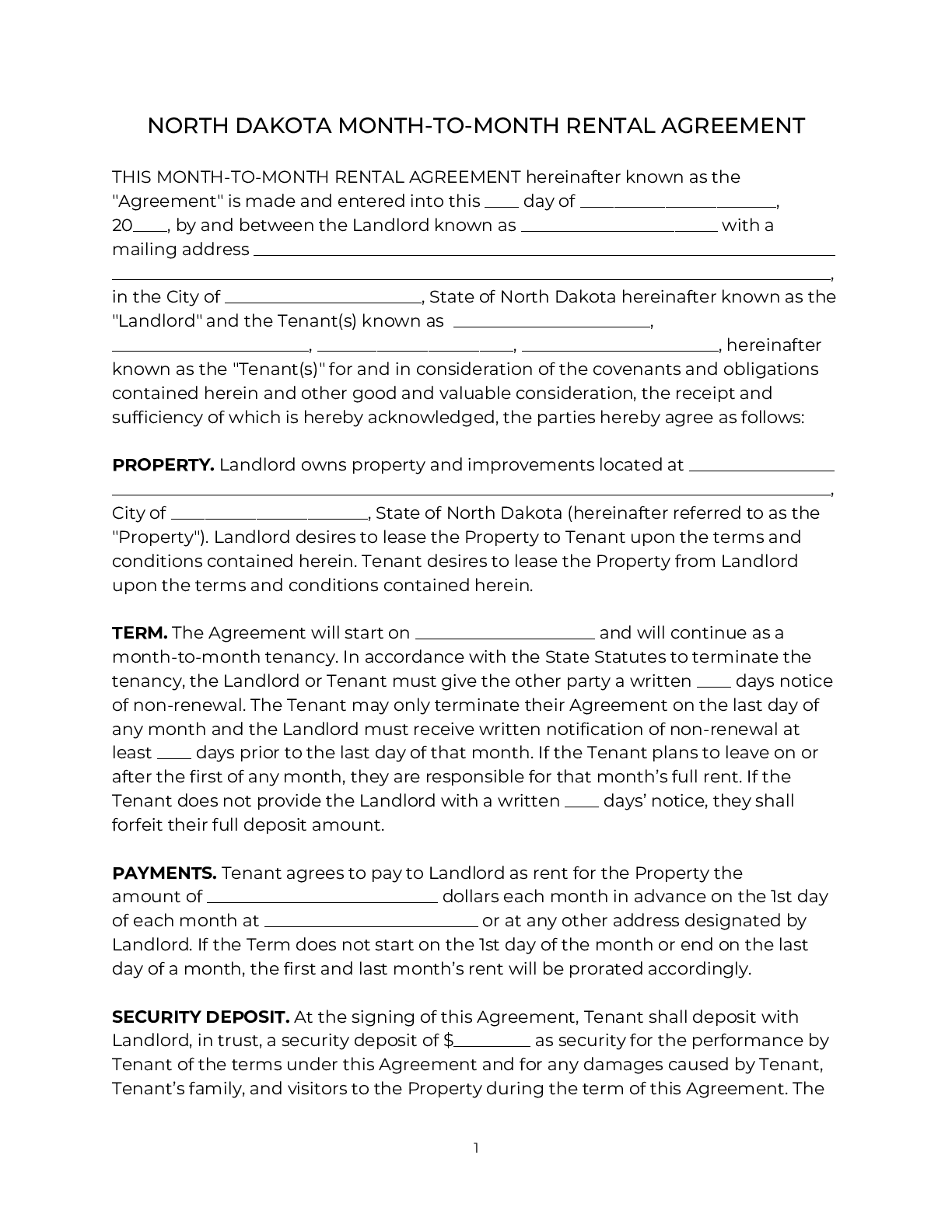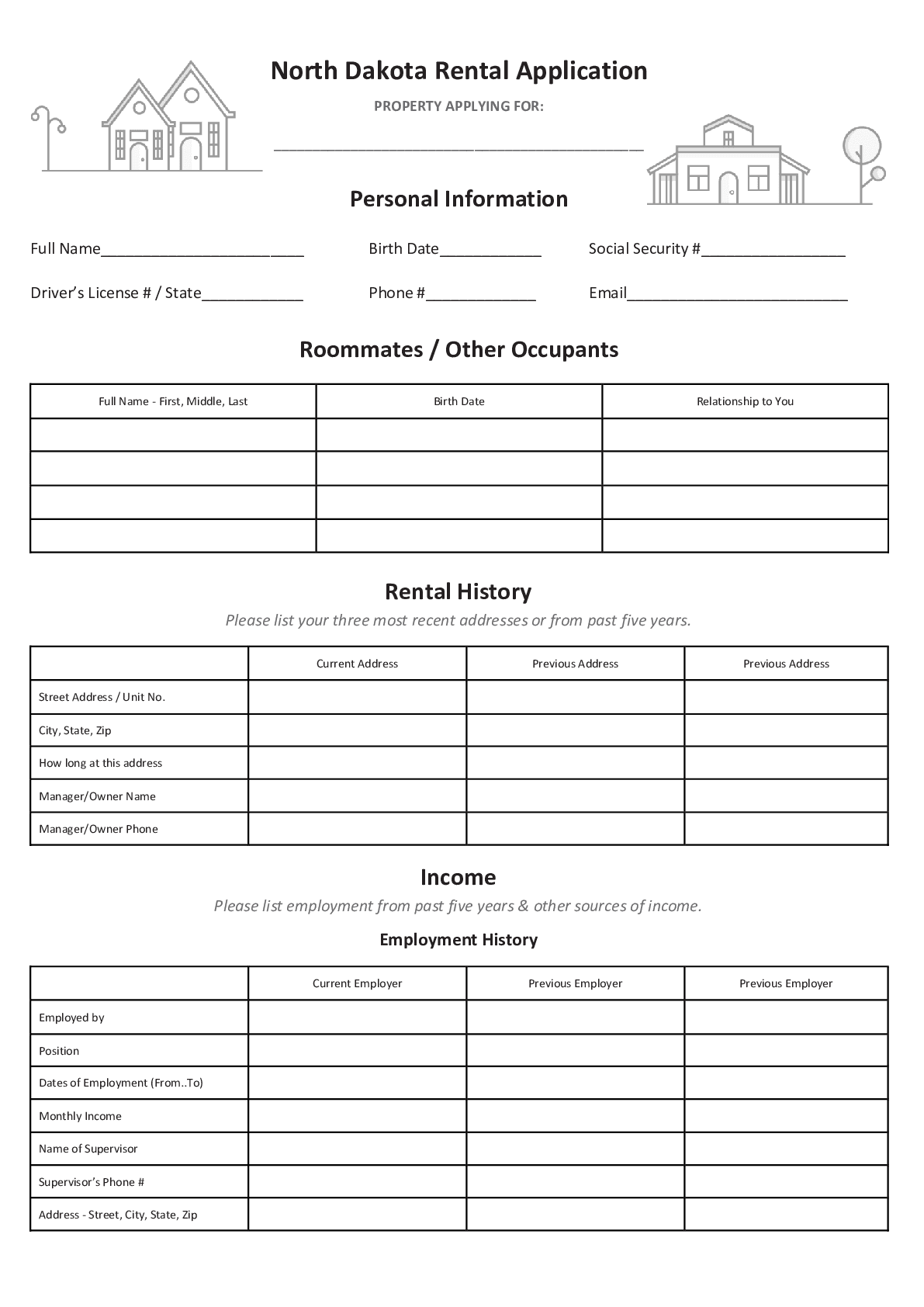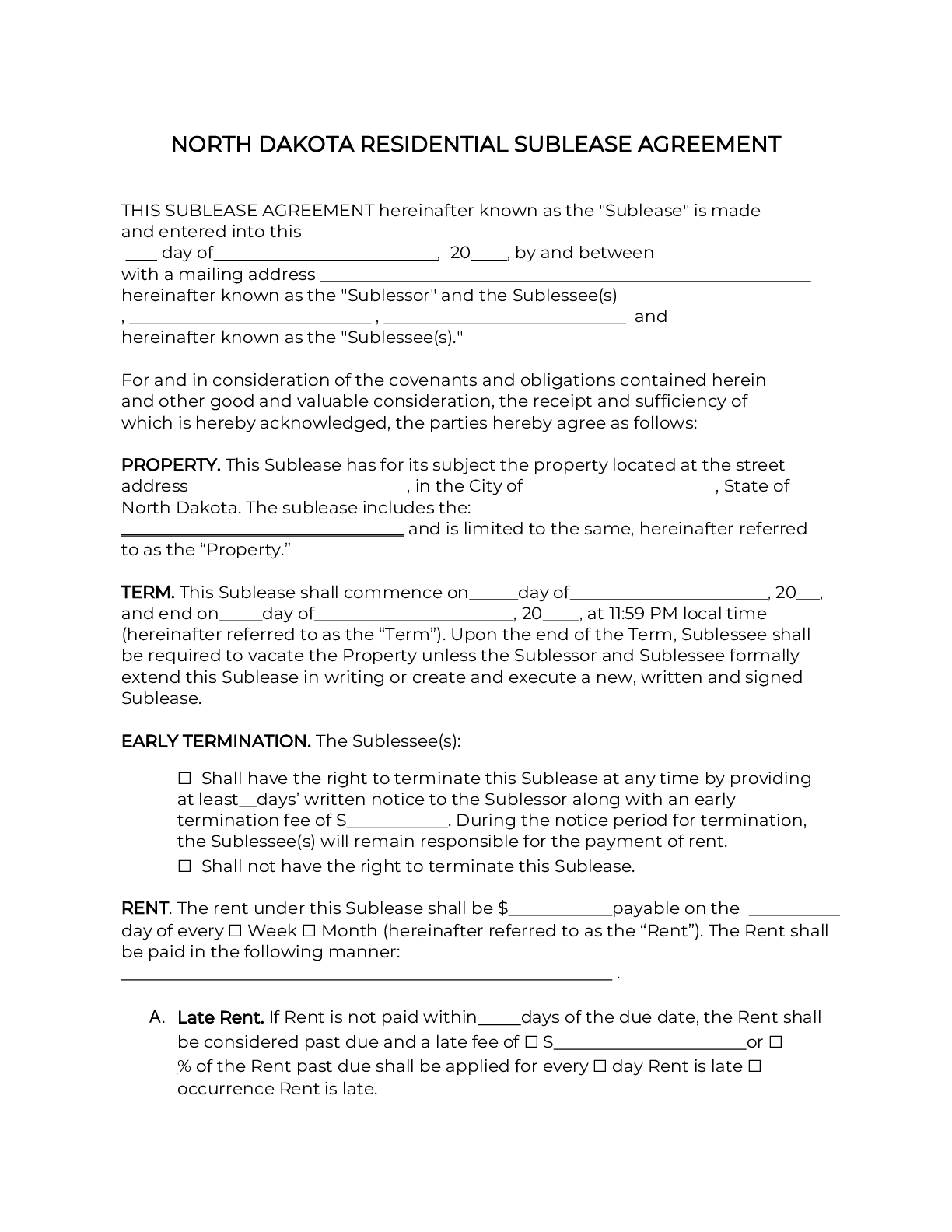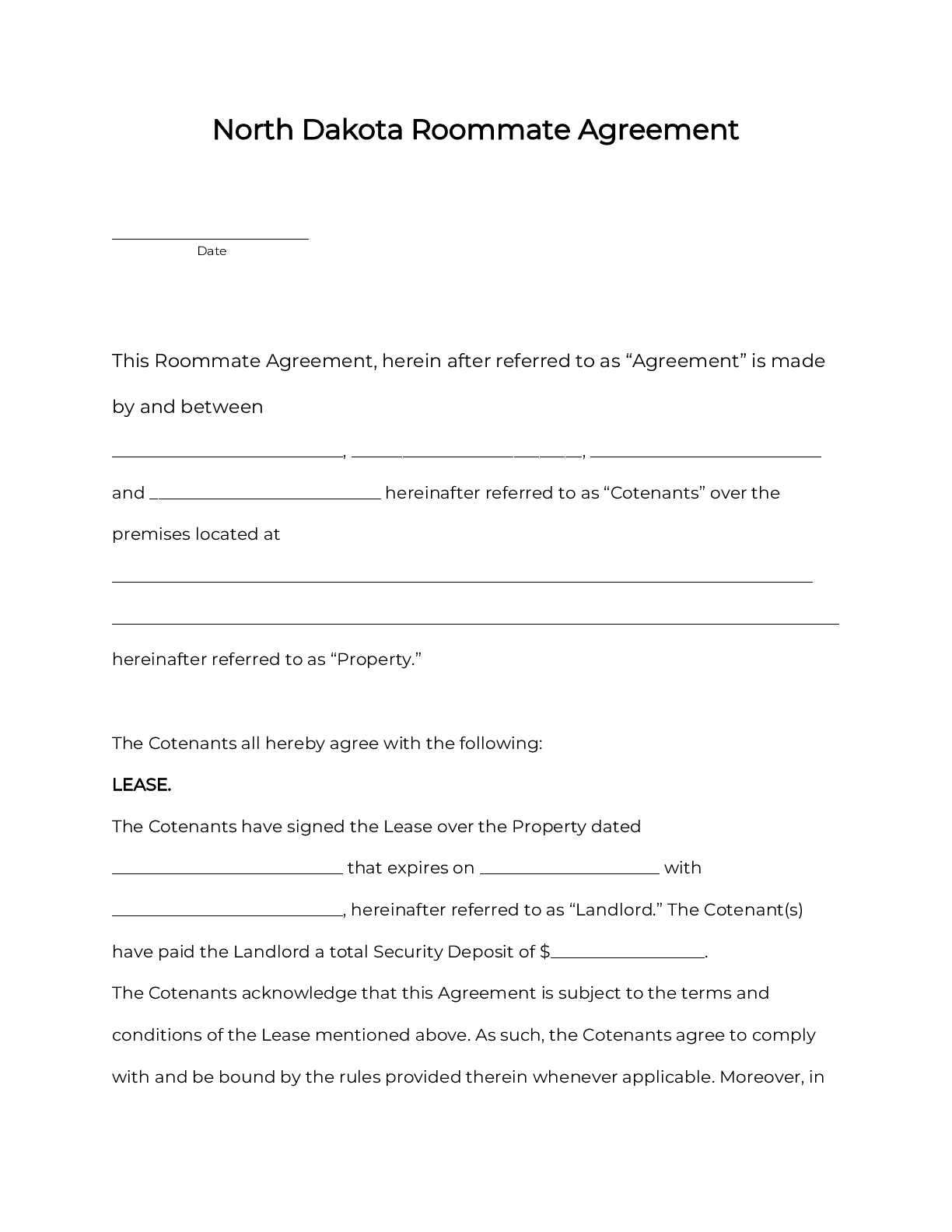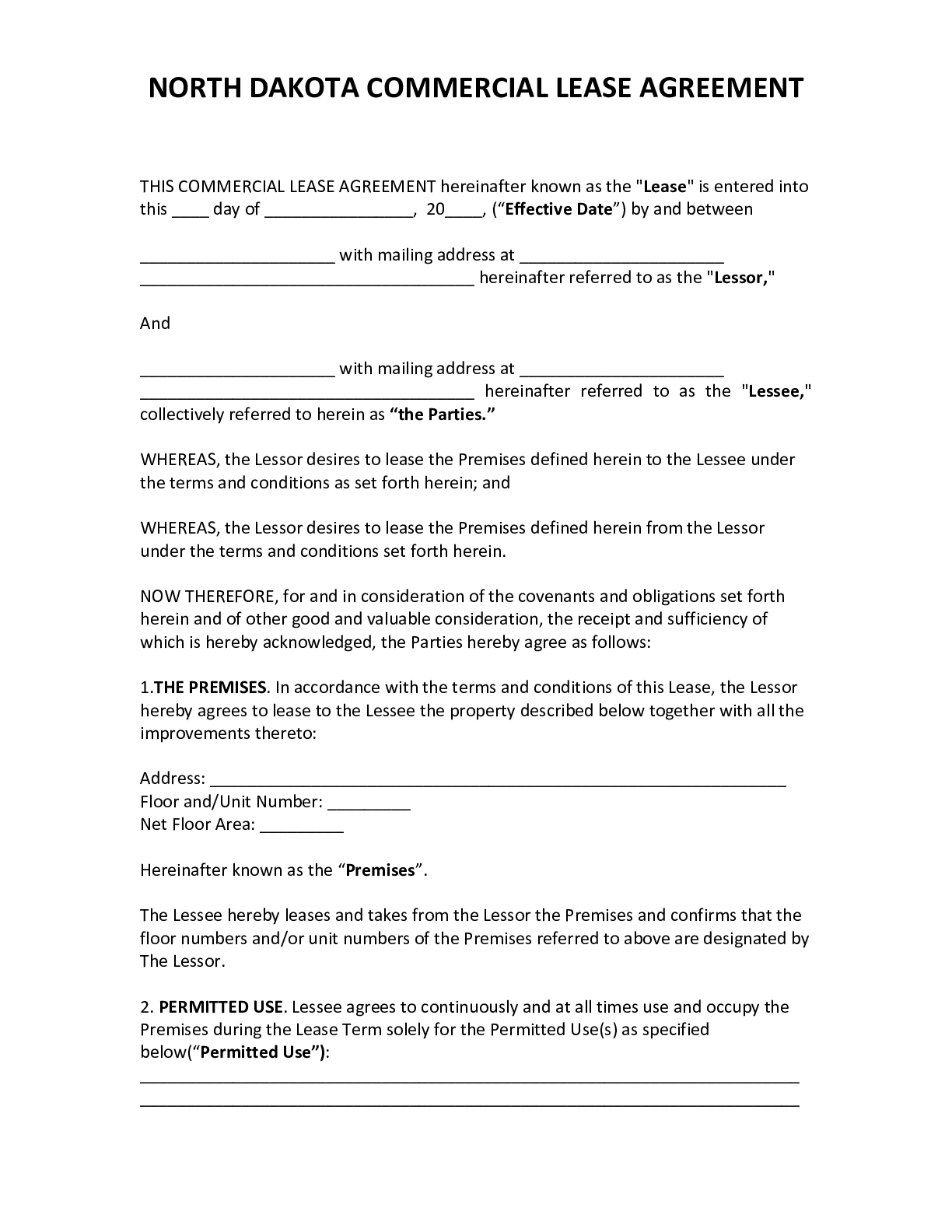A North Dakota rental agreement is a legal contract between a landlord overseeing a rental property and a tenant using the property. Delaware landlord-tenant law governs and regulates these agreements.
North Dakota Rental Agreement Types
A North Dakota roommate agreement is a legal contract between two or more people (“co-tenants”) who share a rental property according to rules they set, including for things like splitting the rent. This agreement binds the co-tenants living together, and doesn’t include the landlord.
North Dakota Required Residential Lease Disclosures
- Move-In Checklist (required for all leases) – North Dakota leases must include a move-in checklist in or alongside the lease. This lets tenants document existing damage when they move in, to ensure accurate deductions from the security deposit later.
- Lead-Based Paint Disclosure (required for some leases) – Landlords must provide an EPA-approved disclosure and informational pamphlet to tenants renting any property built before 1978.
To learn more about required disclosures in North Dakota, click here.
North Dakota Landlord Tenant Laws
- Warranty of Habitability – North Dakota landlords can only rent out habitable property. This means providing certain basic health and safety features like heat, plumbing, and electricity. Landlords must repair any issues within a reasonable time after proper notice. Failure to repair lets a tenant terminate the lease, sue the landlord, or repair and deduct from the rent. Tenants usually can’t withhold rent.
- Evictions – North Dakota landlords may evict for rent default, lease violations, or illegal acts, among other things. Before filing eviction, landlords must serve tenants with prior notice to pay or quit, depending on the eviction type. Evictions in North Dakota are quite fast by national standards, usually only taking a few days.
- Security Deposits – North Dakota limits most security deposits to one month’s rent. Two months’ rent is allowed for convicted felons and tenants with previous leasing infractions. Pet deposits have a limit of $2,500 or 2 month’s rent (whichever is greater). When a lease ends, the landlord must return any unused portion of a tenant’s deposit within 30 days.
- Lease Termination – North Dakota allows tenants to end a month-to-month lease with 30 days of advance notice. Terminating a fixed-term lease usually requires active military duty, landlord harassment, uninhabitable property, or domestic abuse.
- Rent Increases and Fees – North Dakota does not limit rent increases except requiring 30 days of advance notice to the tenant. Landlords can in general set any late fee or other administrative charge by lease agreement. Returned check fees have a $40 limit.
- Landlord Entry – North Dakota landlords can enter rental property for reasonable business purposes, like repairs and inspections. Except in emergencies, a landlord must provide “reasonable” advance notice (usually at least 24 hours).
- Settling Legal Disputes – North Dakota lets small claims courts hear landlord-tenant disputes, as long as the value in controversy is under $15,000. Small claims can’t hear eviction cases. Most landlord-tenant issues fall under a six-year statute of limitations.
To learn more about landlord tenant laws in North Dakota, click here.
Sources
- 1 N.D. Cent. Code § 6-08-16(2)(c)
-
If the person does not pay the instrument in full and any collection fees or costs not in excess of forty dollars within ten days from receipt of the notice of dishonor provided for in subsection 4, the holder of the check, draft, electronic funds transfer authorization, or order or the holder’s agent or representative is entitled to bring a civil action to recover a civil penalty. The civil penalty is payment to the holder of the instrument or the holder’s agent or representative the lesser of two hundred dollars or three times the amount of each instrument.
Source Link




